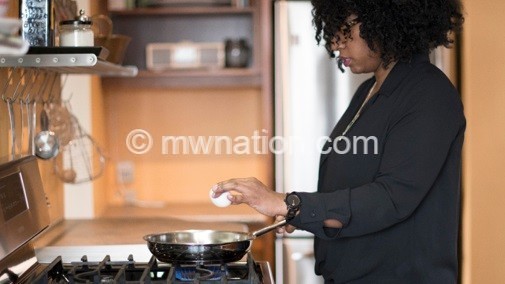Gas tax reduction offers hope
Treasury’s move to remove value added tax (VAT) on liquefied petroleum gas (LPG) and gas cylinders, coupled with a 10.61 percent decline on gas prices has raised hope on increased uptake by consumers.
On Monday, Minister of Finance, Economic Planning and Development Joseph Mwanamvekha said in his 2019/20National Budget presentation on Tuesday that to promote usage of clean energy and compliment hydropower in the country, government has removed VAT on liquefied petroleum gas and gas cylinders.
This, he said, is expected to empower Malawians to purchase clean energy products at affordable prices and reduce dependency on electricity and fuelwood.
On Tuesday, Malawi Energy Regulatory Authority (Mera) also reduced liquefied petroleum gas prices by 10.61 percent, with a kilogramme (kg) now costing a maximum of K2 048.56 from K2 291.82, following a drop in landed cost of LPG by 21.93 percent.

The price reduction comes barely two months after Mera last increased gas prices by 12.11 to K2 291.82 per kg to K2 044.22 per kg.
The decline comes at a time when the consumption of LPG, at 150 grammes per capita, is the lowest in the region, and the country is trying to diversify energy sources.
LPG—known in some countries as propane, butane, bottled gas or cooking gas—is a clean-burning and efficient cooking fuel used by almost three billion people. It has long been an inspirational fuel choice for many urban and rural poor.
Consumers Association of Malawi (Cama) executive director John Kapito on Wednesday observed that the tax reduction in the sector will help improve uptake.
“LPG is the best alternative energy source to electricity and requires huge subsidies, including its appliances for quick uptake by consumers. We would have loved if there was a lot of awareness on the use and uptake of LPG to reduce the burden on electricity, especially during the peak hours as LPG is mainly used for cooking and other heavy domestic use,” he said.
Use of solid fuels for cooking can also cause forest loss and degradation where concentrated use of wood fuels is prevalent, typically in and around urban centres.
In Malawi, the World Bank reports that land degradation alone costs the economy 6.8 percent of the gross domestic product (GDP) annually.
Mera director of liquid fuels and gas Alinafe Mkavea is on record that the energy regulator is banking on new guidelines for LPG to increase uptake of gas, address issues of prices of gas cylinders as well as levies.
“A gas cylinder with one stove now costs an average of K60 000, which in itself is prohibitive to consumers. We are also engaging government so that it can remove some of the levies on gas to make it cheaper and easily accessible,” she said.
The 2018 National Energy Policy confirms of the several barriers to increased use which mainly are due to its high cost.
The policy emphasises on the need to look at ways of doing away with barriers to lower pricing and increased uptake of LPG and to identify potential partnerships to promote greater market penetration.





